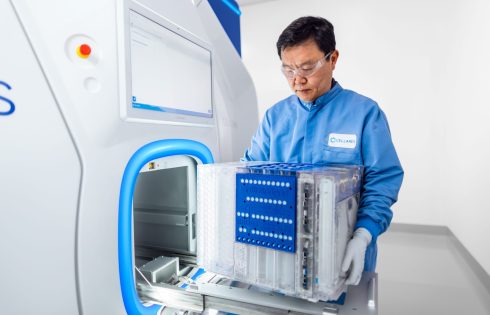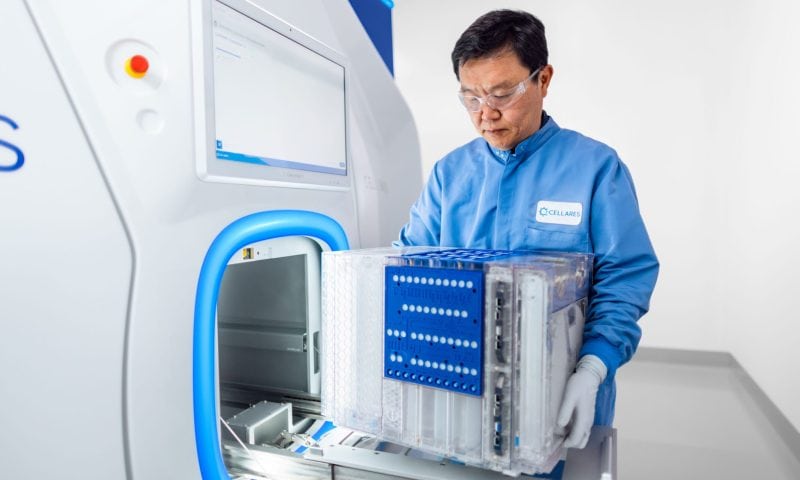
Cellares agreed to collaborate with the University of Wisconsin School of Medicine and Public Health to automate the manufacturing of a CRISPR-edited GD2 CAR-T investigational therapy. Company officials say their Cell ShuttleTM supports early-phase biotechnology and academic cell therapy developers by providing an integrated, automated solution enabling economies of scale.
The platform ensures a seamless transition from clinical development to commercial-scale manufacturing, eliminating the need for costly process redesigns and multiple technology transfers and accelerating time-to-market for innovative therapies, claimed a company spokesperson, adding that by leveraging the Cell Shuttle’s ability to simultaneously manufacture multiple cell therapy products in parallel, this partnership overcomes longstanding manufacturing bottlenecks caused by limited manufacturing capacity.
“Solid tumors can be challenging to treat, and many patients have limited therapeutic options,” said Fabian Gerlinghaus, co-founder and CEO of Cellares. “By collaborating with researchers at the University of Wisconsin–Madison on their CRISPR-edited GD2 CAR-T product, we remove the manufacturing barriers that can hinder promising research. Our Cell Shuttle automates and scales production to a clinical level.”
By enabling the CRISPR-edited GD2 CAR-T project at the University of Wisconsin–Madison to achieve clinical-scale manufacturing earlier, the partnership can help unlock potential investment into the experimental therapy and expedite its path to initial human trials, said Gerlinghaus, who added that the Cell Shuttle automates key steps that traditionally slow down development.

